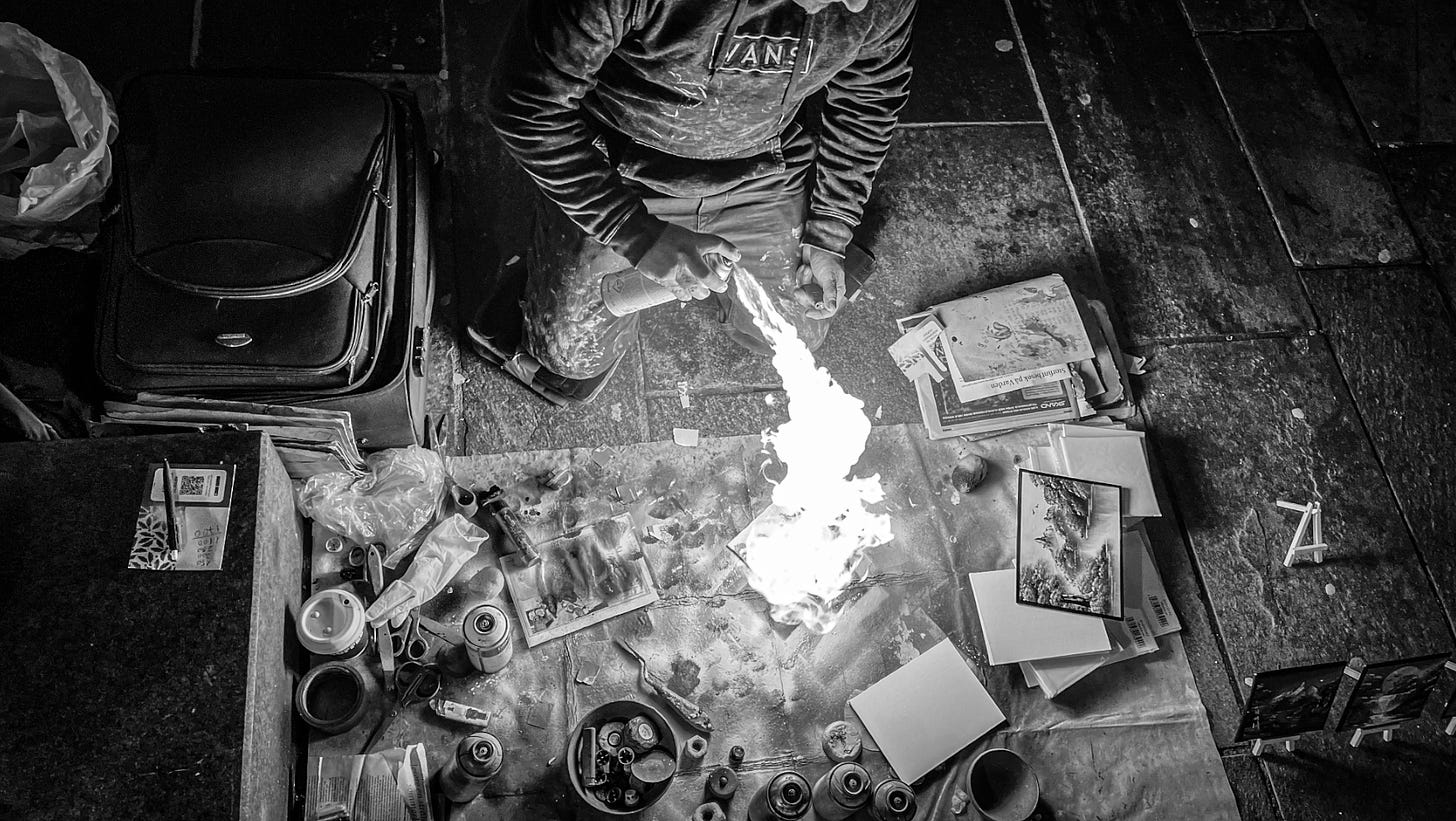(The audio and video are the same, but with a bit more color than what is below. I enjoyed putting this together and hope you enjoy it, too.)
“Why is everyone walking around underperforming relatively to their ability? Largely, it’s because people live their lives trying to avoid embarrassment." - Dr. Gio Valiante
I’ve been lucky to study under masters. One day, a master of his craft sat me down and told me he would fire me unless I changed my communication style. It was that simple. I wasn’t old enough to drink yet, but there I was. My career suddenly seemed over before it started. I’m incredibly grateful that he had the courage and love, to be honest with me. That day, I started studying and working to master the craft of communication, leadership, and team building. A journey I’m still on.
Dr. Gio Valiante is a sports psychologist and coaches some of the most successful people in the world, including hall-of-fame golfers, investors, and others. He had a conversation with Shane Parnish, and the lesson learned for me was about the difference between Ego Orientation and Mastery Orientation.
Ego Orientation Vs. Mastery Orientation
LESSON LEARNED:
When you are focused on becoming a master of your craft, you focus on how you get better, not how people perceive you. When you are ego-focused, you are worried about external validation. Mastery orientation reacts to failure with curiosity. Ego orientation reacts with embarrassment.
Mastery Orientation:
A focus on mastering the craft, continuous improvement, and love of learning. With this orientation, you embrace the fact that you do not have all the answers but enjoy solving problems and aren’t afraid to look foolish. Failure is part of the process. The focus is in. It’s intrinsic. How are you improving? Your competition is yourself.
Ego Orientation:
You are seeking external validation, and failure is not acceptable. When failure happens, which it always does, it leads to embarrassment and potentially toxic emotions (such as anger). The focus is out. How do people perceive you? You are competing with everyone else.
Which orientation you pick will determine your success—both CAN work. There is a little of both in us, and it’s likely a ratio that changes over time.
From Valiante,
“Two individuals, everything else being equal, same education, same ability, same training, same everything. One of them goes at their craft or their domain or at their career from a place of “I love to learn, I love to problem solve, I go into depth with these things…I'm not engaged in image management.” The second individual goes in competing against other people, caring about what people think. Success is only defined by that which is palpable or tangible. They're playing for trophies.”
The difference between the two is the reaction to failure - the mastery orientation is curious, and the ego orientation is embarrassed. After the grief of losing a loved one or a child, humiliation is the most painful psychological response you can have. Like grief, you shut down, and your brain floods your body with chemicals like cortisol, and suddenly, you don’t see as clearly. You go into fear mode, and all you see is risks. Valiante,
All of a sudden, there is a distortion of reality. All of a sudden, all you see is a threat, and you stop taking risks. Now it becomes some version of avoiding the pain that comes from embarrassment…why is everyone walking around underperforming relatively to their ability? Largely, it’s because people live their lives trying to avoid embarrassment.
You don’t have to be mastery-oriented to win. Ego orientation can win, too, but it requires you to have and maintain confidence. If your confidence wavers, so will you. He cites the NBA player who shoots 85% of free throws in practice but in a packed arena, 50%. He cares what people think.
You will fail at some point when trying to get to the “tail end of the curve,” as Valiante calls it. When that happens, how will you react? Will you respond with curiosity or with embarrassment? Only one will make you better.
When we seek external success, we are competing with others. When we seek internal success, we are competing with ourselves.
Keys To Mastery
Humility & Conviction
The highest performers are not always humble, but they do have humility. They have absolute conviction in what they are doing AND the recognition that they don’t know all the answers (think Thomas Edison). They are relentless on improvement or finding a better way (think Steve Jobs).
Responsibility
With mastery, we take responsibility for our actions. With ego, we look for fault outside of ourselves as we work to protect our position, reputation, and view of ourselves. Blaming helps you feel better. Taking responsibility enables you to get better.
Your Team
Valiante closes with a warning,
“Pick three or four people that you’re going to actually listen to, who you know love you and care about you, and who are accurate observers and who will tell you the truth.”
You can practice all of this. Curiosity, humility, love of craft, etc, but you must also surround yourself with people who do NOT judge, criticize, or otherwise feed your self-doubt. You need people who genuinely want to help you on your mastery journey. You need accomplices, not critics. Accomplices are next to you. Critics are across from you.
Take Aways:
Ego Orientation: This is image management and external perception. Externally focused. You care about what people think.
Mastery Orientation: Love of learning and a focus on mastering the craft. Internally focused. You care about getting better.
Avoiding embarrassment is a significant reason behind underperformance.
Humility is crucial. The best individuals in the world readily acknowledge that they don't know everything, creating space for learning and growth.
Taking responsibility will help you get better, and blaming will help you feel better.
I’ll leave you with this from a favorite book of mine, The Courage To Be Disliked.
"When one seeks recognition from others and concerns oneself only with how one is judged by others, in the end, one is living other people’s lives."
If you found this helpful, please hit like and share it with someone who will like it, too. If you want my full highlights from his conversation, please drop a comment or email me.
Take care.



















Understand Your Orientation: Ego Vs. Mastery